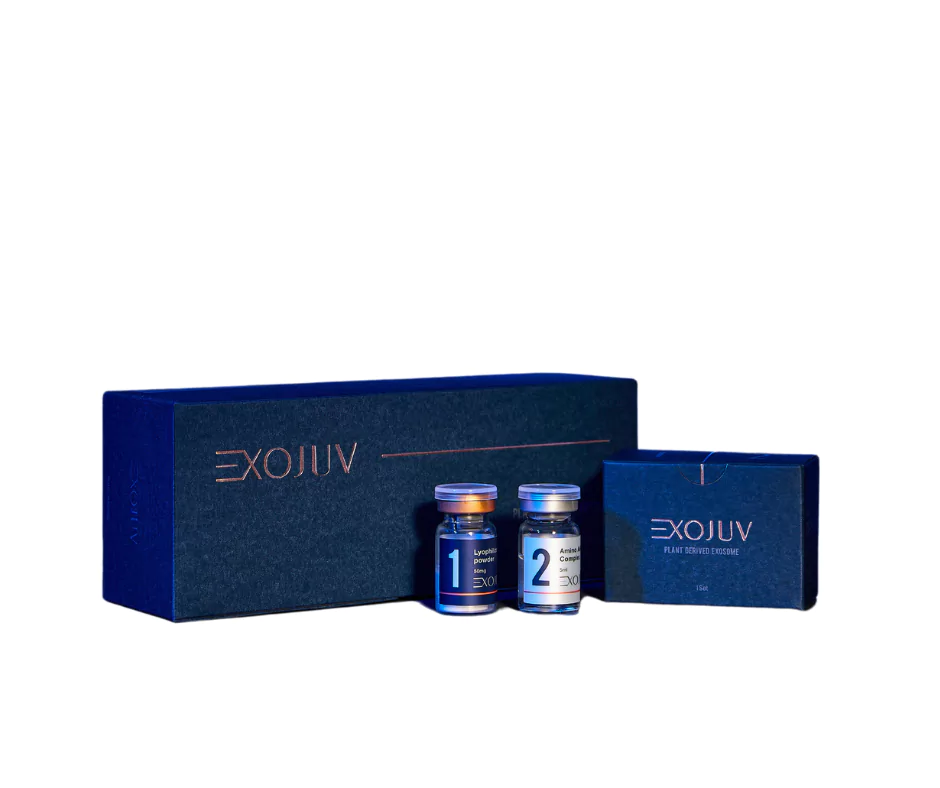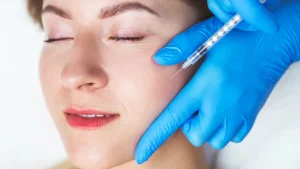Although exosome properties were discovered decades ago, the focus of regenerative medicine only recently shifted to their ability to stimulate dermal papilla cells and enhance angiogenesis.
While there is only limited data to prove safety and efficacy in human subjects undergoing exosome hair loss therapies, let alone a FDA-approved therapy application, preclinical studies are showing evidence on their potential in the treatments of conditions like alopecia.
Medica Depot takes you on a brief tour through the topic of exosome treatments, using the latest findings on how these extracellular vesicles can make a difference in hair and skin cellular regeneration.
Key Takeaways
- Though there is limited clinical research and no FDA-approval, exosomes are becoming increasingly interesting in treatment and prevention of hair loss and alopecia, due to their cell regenerating properties.
- With limited product availability, Exojuv emerges as one of the exosome treatments used topically or via mesotherapy to boost cell renewal and target hair loss in both male and female patients.
- If you include exosome treatments in your practice, ensure you always source the products from reputable distributors to ensure maximum quality of the procedure and the effects you and your patient wish to achieve.
Exploring Exosomes
Extracellular vesicles (EVs) were first identified toward the end of the 20th century as small, membrane-bound particles released by cells into their surrounding environment. These vesicles play a crucial role in intercellular communication by transferring proteins, lipids, RNA, and other bioactive molecules, thus influencing processes such as tissue repair and cellular regeneration.
Exosomes, a specific subtype of EVs, are formed within intracellular vesicles called multivesicular bodies. They are released when these multivesicular bodies fuse with the cell membrane.
While exosomes were initially overlooked in research, regenerative medicine has since shown increasing interest due to their ability to stimulate dermal papilla cells and enhance angiogenesis—a critical process for both hair and skin regeneration.
Today, there is growing exploration into their potential effects, with a focus on how exosomes can contribute to resolving various skin and hair conditions.
Recent studies have shown that exosomes can promote hair follicle growth by stimulating dermal papilla cells, which are essential for hair development. By improving blood supply through angiogenesis, exosomes also support the surrounding tissue, creating an optimal environment for hair growth. Additionally, their anti-inflammatory properties may help mitigate conditions that exacerbate hair loss, such as scalp inflammation and oxidative stress.
Citing research from the National Library of Medicine on the topic of The Roles of Exosomes in Regulating Hair Follicle Growth:
‘’Studies using animal models and at the cellular level have shown that exosomes promote hair growth (…) summarizes the effects of exosomes, EVs and EV mimetics on hair growth. Exosome therapy stands out from cell therapy due to its low immunogenicity and fewer adverse reactions. At present, research on the effect of exosomes on hair remains in its infancy, and the underlying mechanism and efficacy remain to be elucidated. Thus, the use of exosomes in clinical settings for hair growth remains behind the curve: uncertainties persist about the fundamental processes, safety, and the most effective treatment methods, encompassing the delivery of treatment, its origin, and dosage. However, it is envisioned that this novel exosomal therapy will eventually become a novel and hopeful choice for treating alopecia.’’
As a result, new products centered around exosomes are emerging, offering potential solutions for patients suffering from alopecia and other conditions that may not respond well to traditional treatments. The appeal of exosome-based hair loss treatments lies in their minimally invasive application methods and their promise of natural results.
Exosome Therapy for Hair Loss
Even though exosome therapy for hair loss as a concept is still in its infancy, there are products on the market and treatments available for all those patients looking to focus on eliminating the negative effects of alopecia.
One such product is Exojuv, created by Oreon Life Science, with 5 billion plant-derived exosomes and strong regenerative, antioxidant, and anti-inflammatory properties. This product can also be used as an anti-wrinkle treatment and in the process of wound healing.
Exojuv can be applied topically or via mesotherapy, representing a minimally invasive procedure. However, the effectiveness of this treatment heavily depends on the experience of the doctor performing the procedure and the quality of the application.
That said, after undergoing exosome hair loss treatment, patients can expect to experience:
- Mild scalp redness and other skin reactions
- Itching, pain, and other uncomfortable sensations
- Swelling
These side effects are generally mild and expected to resolve within a few days. Patients are typically able to resume their daily routines shortly after the procedure. For optimal results, a series of treatments may be recommended, spaced several weeks apart.
When talking about benefits of exosomes therapy, patients are likely to enjoy:
- Improved hair density
- New hair regrowth
- A decrease in hair fall
Within weeks after treatment, scalp health tends to improve and patients can already start enjoying the results.
Including Exosomes in Your Practice
As a doctor wanting to include exosome therapy for hair loss in your practice, consider that these treatments are best suited for patients with early stages of hair loss or those looking to enhance results from treatments like hair transplantation. Educate your patients before the procedure and let them know that the effects vary from person to person and that multiple treatments may be needed to achieve desired results.
Additionally, it is essential that you stay informed about the latest advancements in exosome therapy and to source high-quality products. By providing detailed consultations and setting realistic expectations, you can ensure patient satisfaction and successful outcomes.
Conclusion
Exosome therapy represents a new frontier in the treatment of hair loss, offering hope for patients and practitioners alike. As time progresses, clinical studies and detailed research will undoubtedly show the positive effects they have for combating numerous skin and hair issues.
If you want to know more about exosomes, or you would like to inform yourself on the best option to source exosomes for your practice, contact Medica Depot. Our team of experts will help guide your shopping experience, because whenever you turn to us, you can expect swift, unmatched service.
FAQ
What are exosomes?
Exosomes are small, membrane-bound extracellular vesicles released by cells that facilitate intercellular communication by transferring proteins, lipids, and genetic material.
How are exosomes used in hair therapy?
Exosome hair therapy is used to stimulate hair follicle growth, enhance scalp health, and promote cellular regeneration through their anti-inflammatory and angiogenic properties.
Are exosome hair loss treatments effective?
Exosome hair loss treatments show promising results in preclinical studies and early applications, but their efficacy varies, and more clinical research is needed for definitive conclusions.
Is exosome hair therapy expensive?
As this is a new technology used to target hair loss, exosome hair therapy is known to be expensive.
References
- Cheng M, Ma C, Chen HD, Wu Y, Xu XG. The Roles of Exosomes in Regulating Hair Follicle Growth. Clinical, Cosmetic and Investigational Dermatology. 2024;17:1603-1612. doi:https://doi.org/10.2147/CCID.S465963
- Gupta AK, Wang T, Rapaport JA. Systematic review of exosome treatment in hair restoration: Preliminary evidence, safety, and future directions. Journal of Cosmetic Dermatology. 2023;22(9):2424-2433. doi:https://doi.org/10.1111/jocd.15869
- Lee E, Choi MS, Cho BS, et al. The efficacy of adipose stem cell‐derived exosomes in hair regeneration based on a preclinical and clinical study. International Journal of Dermatology. 2024;63(9):1212-1220. doi:https://doi.org/10.1111/ijd.17406
- Edgar JR. Q&A: What are exosomes, exactly? BMC Biology. 2016;14(1). doi:https://doi.org/10.1186/s12915-016-0268-z
- prof. Lidia Rudnicka. Exosome treatment of hair loss. Facts and controversies 2024 (2 minute review). YouTube. Published July 22, 2024. Accessed January 1, 2025. https://www.youtube.com/watch?v=x_6i-vpmoxk
- Exosome treatment for hair loss. Bioscience Institute. Published April 25, 2024. Accessed January 1, 2025. https://bioinst.com/en/exosome-treatment-for-hair-loss/







